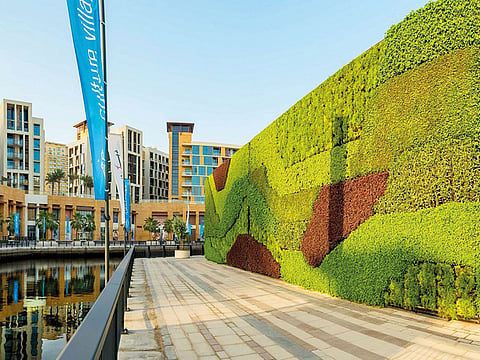Dubai taking lead in sustainable development
Reducing waste is responsibility of all stakeholders including households and industry

By turning trash to energy, Dubai is taking the lead in sustainable development and is a big step towards environment conservation. The announcement by His Highness Sheikh Mohammed bin Rashid Al Maktoum, Vice President, Prime Minister and Ruler of Dubai on Saturday to build a Dh4 billion waste management plant will place the UAE in the league of nations where municipal waste is a source of energy. In Sweden, solid trash is heating homes and powering public transport systems.
In Dubai, a new waste processing plant in Warsan area will be able to handle up to 1,000 garbage trucks a day and power 135,000 homes by 2024. The plant will process 5,666 tonnes every day or 1.9 million tonnes of municipal solid waste per year, generating 200 megawatts of electricity annually. While announcing the project, Shaikh Mohammad said the UAE is committed to implementing innovative projects that optimise use of resources and solve critical challenges.
On a daily basis, we discard dozens of plastic items that can be easily passed on to recycling companies. For this, industry and municipal authorities have to develop collection points and find ways to encourage peopleGulf News
As part of the country’s strategy to ensure environmental sustainability and improve quality of life, Dubai will also develop 12 kilometres of beaches, covering an area of one million square meters from Al Mamzar Beach to Umm Suqeim II at a cost of Dh500 million. This will involve swimming areas, better running paths and longer bicycle tracks.
While the new plant in Dubai will help divert waste from landfills, it is unlikely to reduce per capita waste generation. Reducing waste is the responsibility of households where organic and recyclable waste can be easily separated. For this, the country needs legal framework and a new practice of handling waste at the household level.
Discard the 'use and throw' culture
Second, the society should collectively fight the ‘use and throw culture’, a practice that directly contributes to the growing mountains of solid waste. Our households generate kitchen waste, old electronics and furniture items at a per capita rate that is one of the highest in the world. This practice cannot change without the involvement of industry and businesses.
A small step of providing incentives to households for separating plastic items like milk containers and water bottles and can dramatically alter the economics of waste generation. On a daily basis, we discard dozens of plastic items that can be easily passed on to recycling companies. For this, industry and municipal authorities have to develop collection points and find ways to encourage people.







